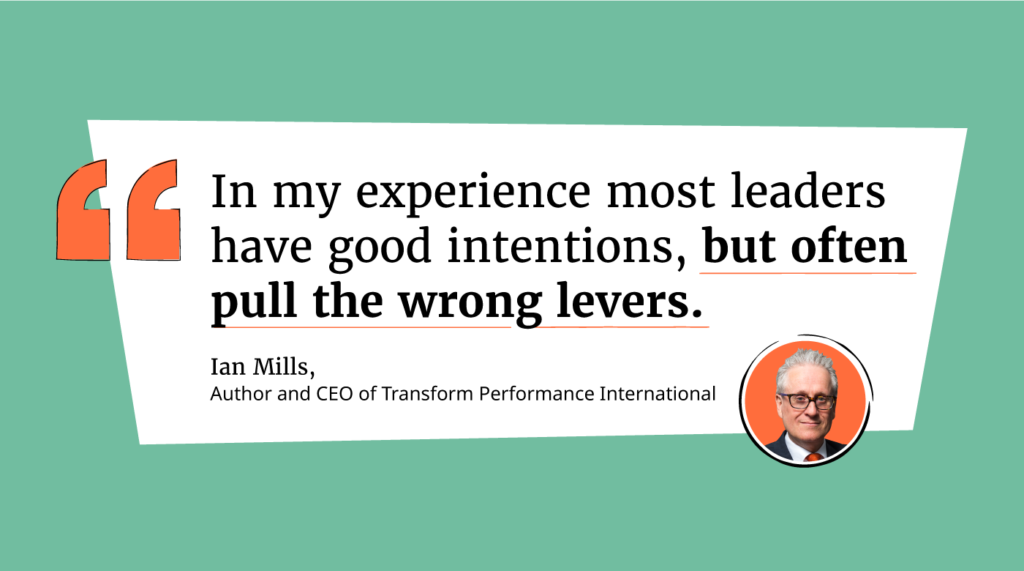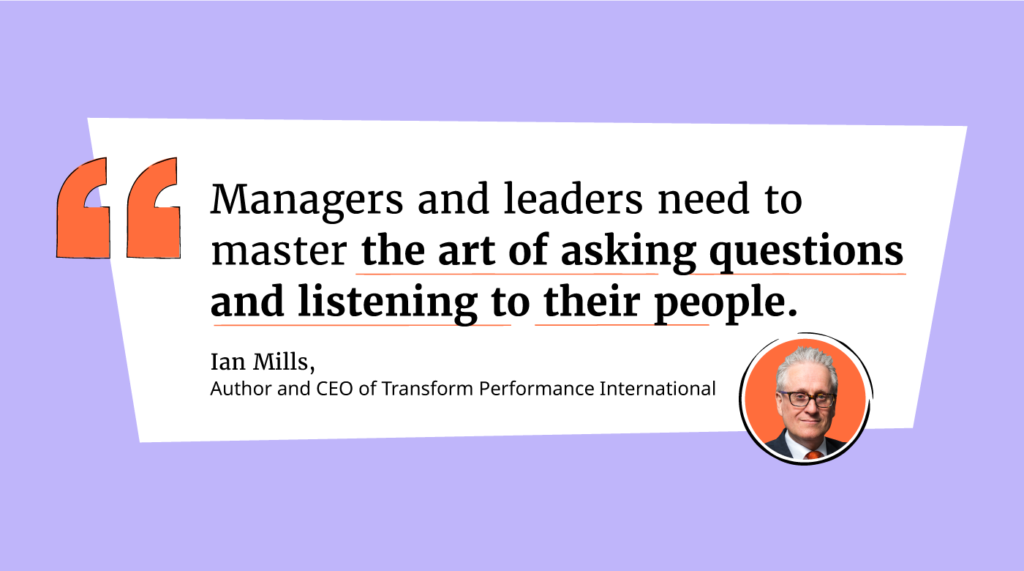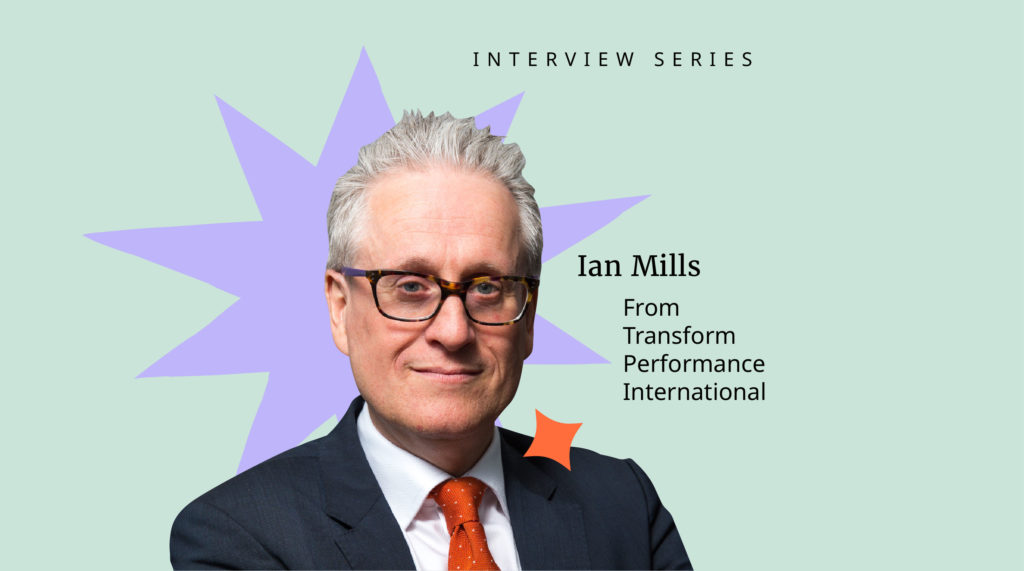We’re passionate about the world of work, and how we can make it better. To help satisfy our curiosity, we’ve launched an interview series where we pick the brains of experienced leaders, business owners, managers, and individual contributors to get their thoughts on how we can collectively build better workplaces.
We’d love to get to know you a bit better, tell us a bit about your backstory.
I’ve been working now for over 40 years, so I’ve seen the good, the bad, and the ugly. I started work selling for Mars Inc. then I moved into the financial sector, then the technology sector. Then I set up Transform Performance International approx. 20 years ago.
I’m the son of a Butcher, live in the English countryside with my wife, have worked in 60 countries, have daughters, grandchildren, love football (Manchester United!), golf and Bobby the Australian Labradoodle.
If we were to ask a friend to describe your personality to us, what would they say?
So my first instinct is to say, “well you’d have to ask them!”. But the many psychometric instruments I’ve used suggest I’m outgoing, on the formal side, am results-orientated, fast paced, and decisive (let’s stick to the positives here shall we).
Thinking back to your career journey, what’s an interesting story that stands out?
I once worked for a successful entrepreneur who had an extreme view to problem solving. I once told him that I couldn’t get a hold of someone because they were sailing in the Pacific. His response was “well hire a helicopter and track them down.”
What’s the most impactful lesson you've learned over your career thus far?
I’ve learnt that the power of the beliefs we hold can completely change our outcome.
Ian Mills
“Anything is possible” is a good example of a belief held by top-performing athletes, entrepreneurs, businesspeople, and parents.
As an example, I once interviewed Mike Tobin, who ran 40 marathons in 40 consecutive days. Amazing!
Thanks for giving us some insight into who you are! Let’s jump into things. When you hear the phrase “build a better world of work”, what comes to mind?
An environment where people are challenged and stretched, and where people learn and achieve things they never imagined they could.
An environment that might be tough in the moment, but where people look back in 10 years’ time with enormous pride for themselves.
We didn’t need to get that helicopter in the end, as it happens. But imagine it was crucial and I managed it….I’d have been extremely scared and stressed in the moment, but would have been so proud of myself for pulling it off.
For you, what’s the main blocker you see as standing in the way of building a better world of work?
It’s the belief systems held by many managers and leaders.

They believe that they’re motivating and engaging and empowering their people…but sometimes their teams feel the opposite way…
What steps do you recommend someone take in order to remove this blocker?

And it’s about listening to their people beyond the words that are transmitted, and more about getting to the heart of the feelings, vibes, and attitudes, to such a level where you can recalibrate how you lead. You end up getting more out of your teams.
What’s one thing within our control that we can practically do to build a better world of work today?
Show more curiosity and listen more intimately. This is within everyone’s control, and it’s a skill that is honed and developed through relentless practice… which can then become your habit.
What steps do you recommend someone take in order to put your idea (from the previous question) into action?
Why not use this coping mechanism to help you change—play a mind game in your next 1 hour meeting with one of your teams. Your challenge is to ONLY ask questions. Listen. Don’t tell them anything.
You might feel very awkward, but this will help you in the long run.
Can you share one thing you’ve experienced, seen, or read about that is leading us towards a better world of work?
The most powerful, liberating, and game-changing method of development is to model someone who is exceptional at something. And it could be anything…their THING could be public speaking, it could be playing the piano. But make sure that that something is manageable and achievable.
Then just go and offer to buy them a coffee. Ask them how they do what they do. And dig deeper than skills and techniques—try and find out exactly what’s going on in their head when they’re planning or executing that THING you’ve observed that is exceptional.
Then take those insights and copy and paste them into your own modus operandi.
I’m curious, thinking about building a better world of work, is there a company and/or leader who stands out to you as someone we should follow? If so, what are they up to?
I watch Steven Bartlett on Dragon’s Den and he pops up on my LinkedIn, he has an exceptional perspective of what leadership is, and can be.
How can our readers follow your work?
Follow me on LinkedIn:
- https://www.linkedin.com/in/iandmills/
- https://www.linkedin.com/company/transform-performance-international/
Read The Leader’s Secret Code and Salesperson’s Secret Code books for our research into the mindsets of the world’s top performing people.
Thank you for adding your voice to People Managing People’s interview series on How to Build a Better World of Work!
Want To Add Your Voice To The Conversation?
Join our interview series and share your ideas for how we can build a better world of work!

